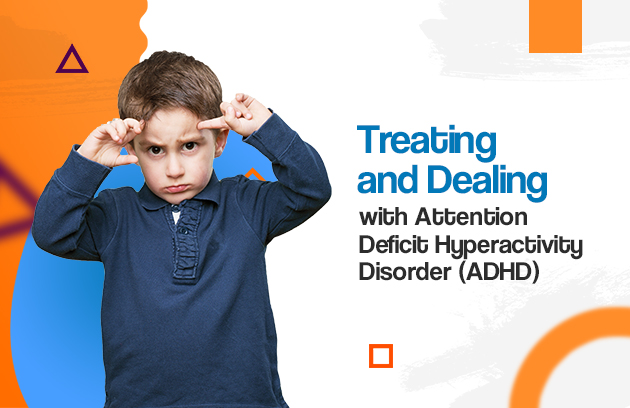Attention Deficit Hyperactivity Disorder (ADHD) is a neurodevelopmental disorder that affects millions of individuals worldwide. It is characterized by persistent patterns of inattention, hyperactivity, and impulsivity. While ADHD is often associated with children, it can persist into adulthood, causing challenges in various aspects of life. Fortunately, there are effective strategies for treating and managing ADHD, enabling individuals to lead fulfilling lives. In this blog, we will explore the essential aspects of treating and dealing with ADHD.
Understanding Attention Deficit Hyperactivity Disorder (ADHD)
Before diving into treatment strategies, it’s crucial to understand the nature of ADHD. ADHD is not simply a lack of focus or self-control; it is a complex neurobiological condition. It affects executive functions like attention, memory, and self-regulation. It can manifest in various ways, including:
- Inattentive symptoms: Difficulty staying focused, following instructions, and organizing tasks.
- Hyperactive-impulsive symptoms: Restlessness, impulsivity, and difficulty with patience and self-control.
- Combined presentation: A combination of both inattentive and hyperactive-impulsive symptoms.
Diagnosis ADHD
Diagnosing ADHD is a crucial first step in effective treatment. A qualified healthcare professional, such as a psychiatrist or psychologist, will conduct a comprehensive evaluation. They will consider the individual’s symptoms, medical history, and gather information from family members, teachers, or employers. To be diagnosed with ADHD, the symptoms must significantly impair daily functioning and persist for at least six months.
Treatment Options for Attention Deficit Hyperactivity Disorder (ADHD)
Treatment for ADHD typically involves a multimodal approach, which may include a combination of the following:
1. Medication: Stimulant and non-stimulant medications are commonly prescribed to manage ADHD symptoms. Stimulants like methylphenidate (e.g., Ritalin) and amphetamine (e.g., Adderall) can improve focus and reduce impulsivity. Non-stimulant options like atomoxetine (Strattera) and guanfacine (Intuniv) may be recommended for those who don’t respond well to stimulants or have concerns about their side effects. Medication should be prescribed and monitored by a healthcare professional.
2. Behavioral Therapy: Behavioral interventions can help individuals with ADHD develop skills to manage their symptoms. Cognitive-behavioral therapy (CBT) can be effective in teaching coping strategies, time management, and organizational skills. Parent training and support groups are also available for families dealing with ADHD.
3. Education and Psychoeducation: Learning about ADHD and its impact can empower individuals and their families to better understand the condition. Psychoeducation can help individuals recognize their strengths and weaknesses and develop self-awareness.
4. Lifestyle Modifications: Adopting a healthy lifestyle can significantly benefit individuals with ADHD. This includes regular exercise, a balanced diet, and adequate sleep. Avoiding excessive caffeine and sugar can help stabilize energy levels.
5. Environmental Modifications: Creating an organized and clutter-free environment can reduce distractions and improve focus. Setting up routines and using visual schedules can also be helpful.
6. Supportive Services: Depending on the individual’s needs, support services such as tutoring, academic accommodations, and occupational therapy may be beneficial, especially for children and adolescents.
Coping Strategies
In addition to formal treatments, individuals with ADHD can implement coping strategies to manage their symptoms effectively:
1. Time Management: Using tools like calendars, planners, or digital reminders can help individuals stay organized and manage their time more efficiently.
2. Break Tasks into Smaller Steps: Breaking tasks into smaller, manageable steps can make them less overwhelming and improve productivity.
3. Mindfulness and Meditation: Practices that promote mindfulness and relaxation can help individuals with ADHD manage stress and impulsivity.
4. Regular Exercise: Physical activity can boost mood, improve focus, and reduce hyperactivity.
5. Support Systems: Building a strong support network, including friends, family, and support groups, can provide emotional and practical assistance.
Conclusion
ADHD is a challenging condition that can affect various aspects of life, but with the right treatment and coping strategies, individuals with ADHD can thrive. Seeking professional help, understanding the nature of ADHD, and implementing a multimodal approach to treatment can make a significant difference. Remember, managing ADHD is a journey that requires patience and ongoing effort, but it is entirely possible to lead a fulfilling and successful life with ADHD.

